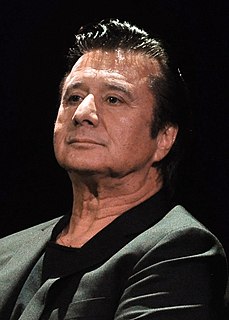A Quote by Thomas A. Edison
After we had conducted thousands of experiments on a certain project without solving the problem, one of my associates, after we had conducted the crowning experiment and it had proved a failure, expressed discouragement and disgust over our having failed to find out anything. I cheerily assured him that we had learned something. For we had learned for a certainty that the thing couldnt be done that way, and that we would have to try some other way.
Related Quotes
Some failure in life is inevitable. It is impossible to live without failing at something, unless you live so cautiously, that you might as well not have lived at all. In which case you have failed by default. Failure gave me an inner security that I had never obtained by passing examinations. Failure taught me things that I could not have learned any other way. I discovered I had a strong will and more discipline than I had suspected.
I had grown up. I had learned that being a woman was knowing when to stand firm and when to compromise. I had learned to laugh and weep; I had learned that I was weak as well as strong. I had learned to love. I was no longer a rigid, upright tree that would not flex and bow, even though the gale threatened to snap it in two; I was the willow that bends and shivers and sways, and yet remains strong.
At the age of eleven, I began Euclid, with my brother as my tutor. ... I had not imagined that there was anything so delicious in the world. After I had learned the fifth proposition, my brother told me that it was generally considered difficult, but I had found no difficulty whatsoever. This was the first time it had dawned on me that I might have some intelligence.
He had regrets, of course, but not so many that he would lose any sleep over them. Life surprised him now and then and he didn't much care for surprises, unless he was passing them out. But - what was to be done? You had to deal with the reality, he had learned that over the years, no matter how much you didn't like it
Everybody was cratered after Copenhagen. If the movie had worked the way that it should have, if it had been scripted by Holywood, the world would have come together and addressed the biggest problem it ever had faced and delegates would have embraced each other, and it all would have been a good happy scene instead of the complete farce and debacle that it turned into - maybe in certain ways, an absolute low point for human diplomacy.
In the weeks since I had made the decision to leave my father's house, I had grown up. And I had learned that not every battle can be fought by firing an arrow from a bow. But I would have to face whatever new challenges came my way as bravely as I had faced the Huns. I could not wallow in self-pity, thinking about what might have been. I had to do my duty. It was the only way to stay true to myself.
Nine Inch Nails was an experiment with me in discipline. I realized when I was 23 that I had never really tried anything. Schoolwork came easy to me. I learned to play piano effortlessly. I was coasting. I realized that I was afraid to really, really try something, 100 percent, because I had never reached true failure.
The TV scientist who mutters sadly, "The experiment is a failure; we have failed to achieve what we had hoped for," is suffering mainly from a bad script writer. An experiment is never a failure solely because it fails to achieve predicted results. An experiment is a failure only when it also fails adequately to test the hypothesis in question, when the data it produces don't prove anything one way or another.
She had, without realizing it at the time, learned to follow Nick's gaze, learned to learn his lust...his desires remained memorized within her. She looked at the attractive women he would look at...She had become him: she longed for these women. But she was also herself, and so she despised them. She lusted after them, but she also wanted to beat them up. A rapist. She had become a rapist, driving to work in a car.
Peter was not with them for the moment, and they felt rather lonely up there by themselves. He could go so much faster than they that he would suddenly shoot out of sight, to have some adventure in which they had no share. He would come down laughing over something fearfully funny he had been saying to a star, but he had already forgotten what it was, or he would come up with mermaid scales still sticking to him, and yet not be able to to say for certain what had been happening. It was really rather irritating to children who had never seen a mermaid.





































